eu-citizen.science blog
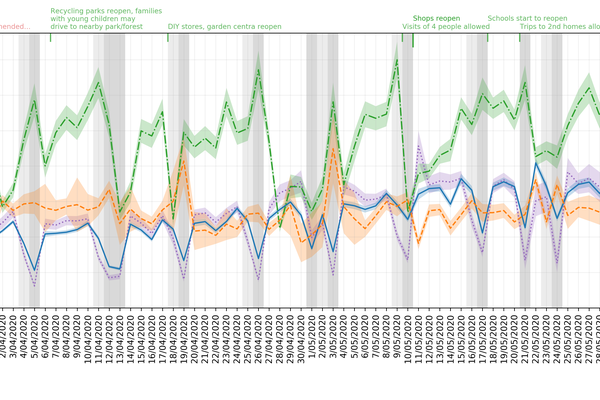
Francisco Sanz, July 26, 2020, 11:06 p.m.
Walking and cycling are becoming the new normal for many people across Europe.
Citizen science projects are helping to reveal changing travel habits in response to the virus outbreak. The most striking observations are the increase of bike traffic, even exceeding pre-corona levels on most days.
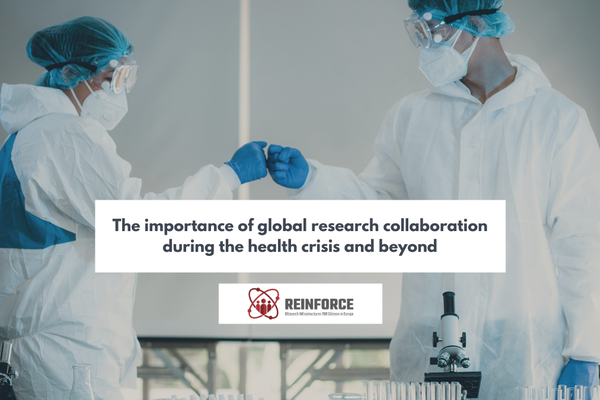
Francisco Sanz, July 26, 2020, 10:59 p.m.
The importance of global research collaboration during the health crisis and beyond
The current COVID-19 pandemic has highlighted how important it is for research institutions around the globe to cooperate in order to achieve the same goal. Indeed, cooperation has turned out to be crucial in order to develop diagnostics, vaccines and treatments to tackle health emergencies such as COVID-19.

Francisco Sanz, July 26, 2020, 10:42 p.m.
What happens when staying at home is not pleasant, or even safe?
Asking people to stay at home does not sound like a great sacrifice. But what happens when staying at home is not pleasant, or even safe? In our project, D-NOSES, we like to think we defend the direct environment in which we live and spend most of our time – our homes, neighbourhoods, and cities.
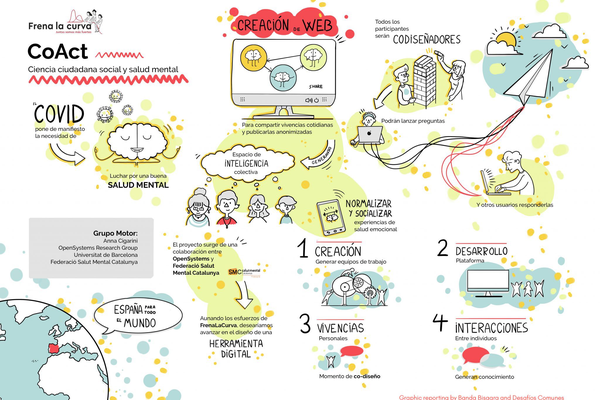
Francisco Sanz, July 26, 2020, 10:31 p.m.
CoActFrenaLaCurva project
In an attempt to respond to the COVID-19 crisis and to explore co-creation through digital platforms and tools, two CoAct partners (Universitat de Barcelona and Federació Salut Mental Catalunya) developed the CoActFrenaLaCurva project devoted to investigate the mental health informal support networks in times of Coronavirus.
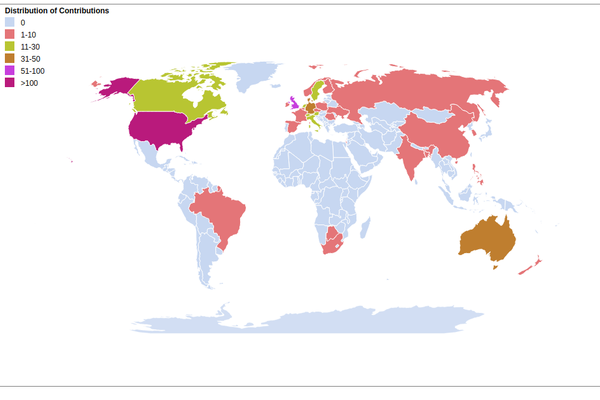
Francisco Sanz, July 26, 2020, 3:56 p.m.
Current methods in Citizen Science engagement
A new citizen science research and innovation project has produced its first public report: best methods in citizen science engagement.
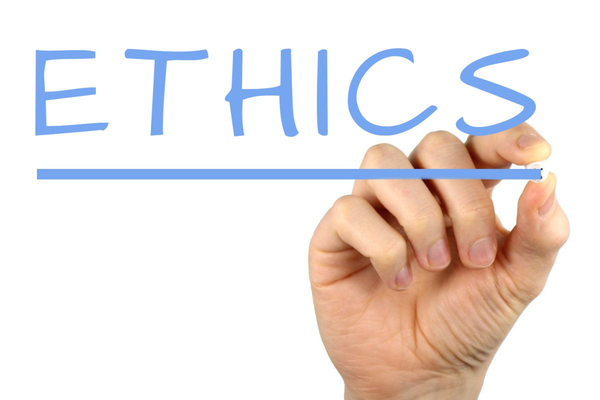
Francisco Sanz, July 26, 2020, 3:47 p.m.
What ethics for citizen science?
Free and voluntary active citizen participation can take place at various levels: from simple data collection to the construction of tools such as low-cost sensors, to data analysis, to design of research protocols, and the identification of the topics to be investigated.
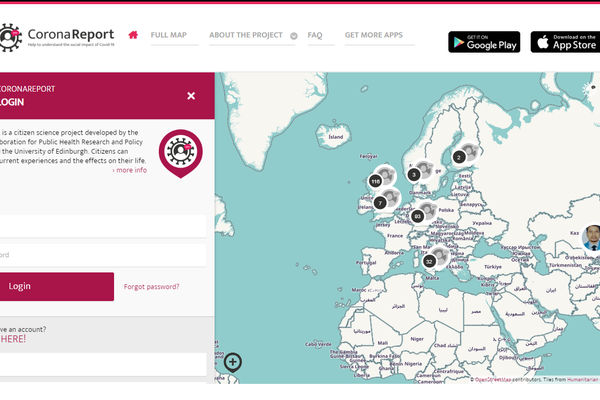
Lucie Steigleder July 24, 2020, 4:10 p.m.
Citizen science is a dialogue that should take place in public-oriented spaces
Jessica Hafetz Mirman from the University of Edinburgh worked on the elaboration of a Citizen Science app during the lockdown period.
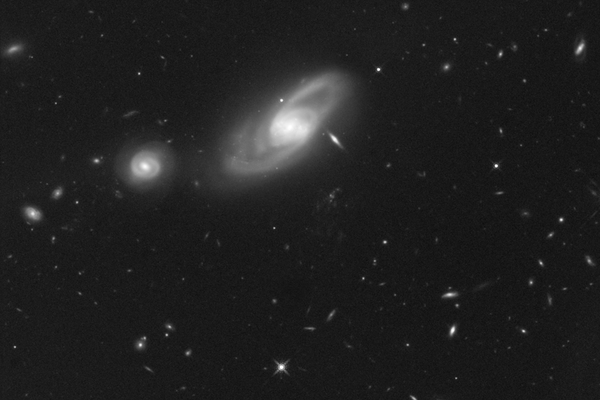
Lucie Steigleder July 19, 2020, 12:03 p.m.
People were truly looking for a way to take an active part in science
Chris Lintott, co-founder of Zooniverse, shares how the platform had to adapt to the COVID pandemic.

Margaret Gold, July 17, 2020, 8:25 a.m.
How we selected the starter set of resources, and curated ‘Our Selection’
It is part of our mandate within the EU-Citizen.Science project to take stock of the vast number of existing tools, guidelines and other materials available in and for citizen science, and to highlight, curate and organise those that are high quality and represent best practice in the field.
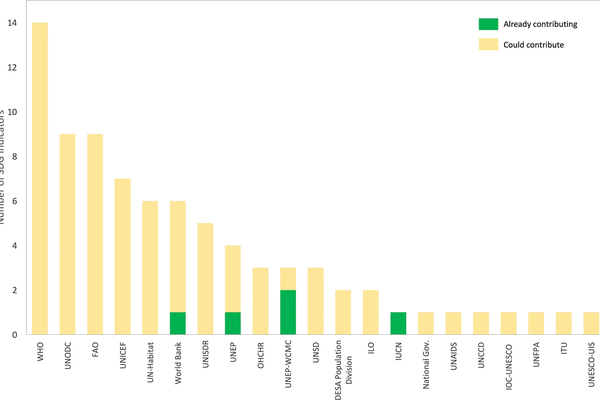
Francisco Sanz, July 10, 2020, 8:22 a.m.
Closing the gap: Citizen science for monitoring sustainable development
Citizen science could help track progress towards all 17 UN Sustainable Development Goals (SDGs). An IIASA-led study, for the first time, comprehensively analyzed the current and potential contribution of citizen science data to monitor the SDGs at the indicator level.
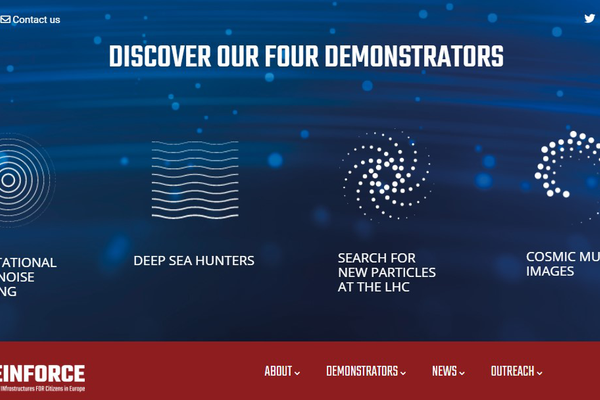
Francisco Sanz, July 7, 2020, 8:33 a.m.
New-designed REINFORCE web platform to stimulate community engagement
The REINFORCE project (Research Infrastructures FOR Citizens in Europe), supported by the European Union’s Horizon 2020 SWAFS programme, has launched its new fully-developed website.

Francisco Sanz, June 23, 2020, 2:05 p.m.
Webinar on the topic of Learning & Education in Citizen Science
We are delighted to have hosted the first of what we hope will become a series of regular online events enabling the citizen science and learning community to share their work and raise awareness of projects, research and resources with each other and the wider citizen science community. This webinar was initiated by members of the ECSA working group on “Learning and Education in Citizen Science” and the Citizen Science COST Action WG2 - Develop synergies with education.